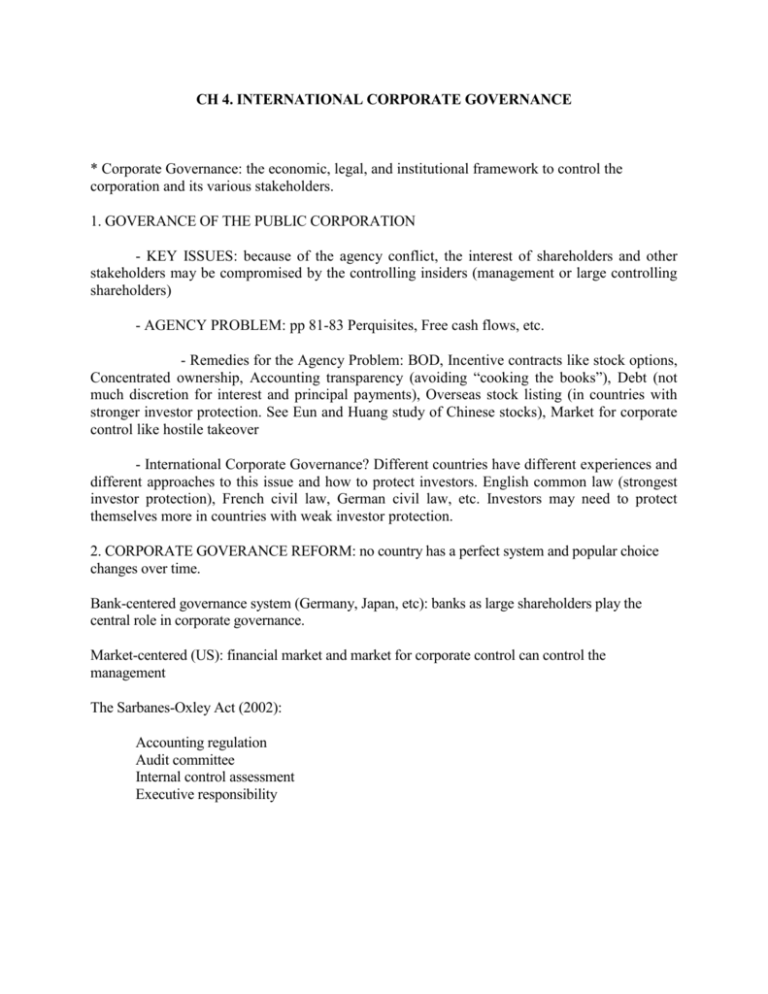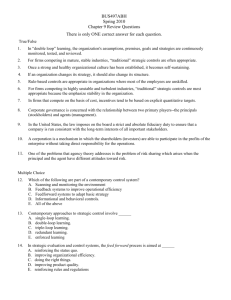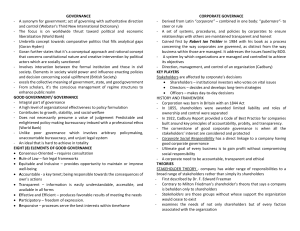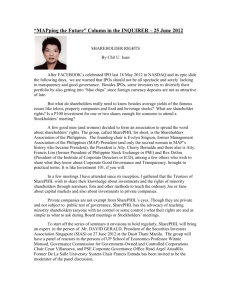International Corporate Governance: Agency & Reform
advertisement

CH 4. INTERNATIONAL CORPORATE GOVERNANCE * Corporate Governance: the economic, legal, and institutional framework to control the corporation and its various stakeholders. 1. GOVERANCE OF THE PUBLIC CORPORATION - KEY ISSUES: because of the agency conflict, the interest of shareholders and other stakeholders may be compromised by the controlling insiders (management or large controlling shareholders) - AGENCY PROBLEM: pp 81-83 Perquisites, Free cash flows, etc. - Remedies for the Agency Problem: BOD, Incentive contracts like stock options, Concentrated ownership, Accounting transparency (avoiding “cooking the books”), Debt (not much discretion for interest and principal payments), Overseas stock listing (in countries with stronger investor protection. See Eun and Huang study of Chinese stocks), Market for corporate control like hostile takeover - International Corporate Governance? Different countries have different experiences and different approaches to this issue and how to protect investors. English common law (strongest investor protection), French civil law, German civil law, etc. Investors may need to protect themselves more in countries with weak investor protection. 2. CORPORATE GOVERANCE REFORM: no country has a perfect system and popular choice changes over time. Bank-centered governance system (Germany, Japan, etc): banks as large shareholders play the central role in corporate governance. Market-centered (US): financial market and market for corporate control can control the management The Sarbanes-Oxley Act (2002): Accounting regulation Audit committee Internal control assessment Executive responsibility











